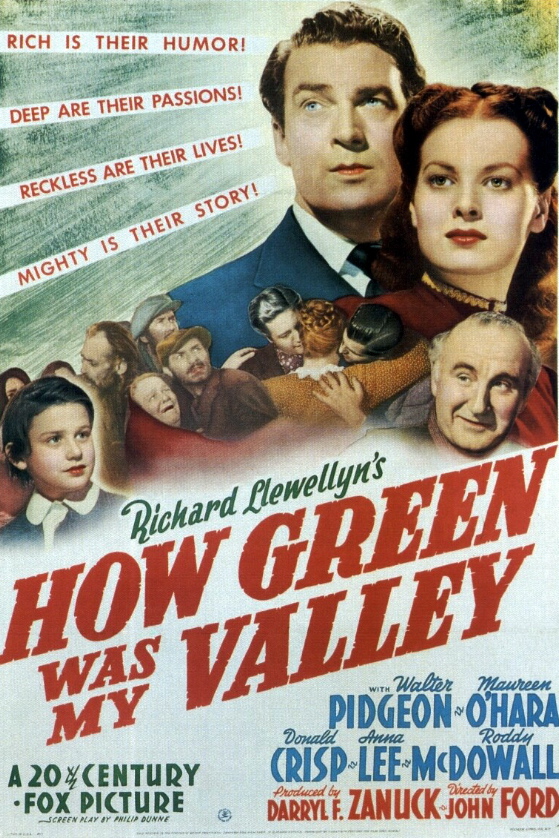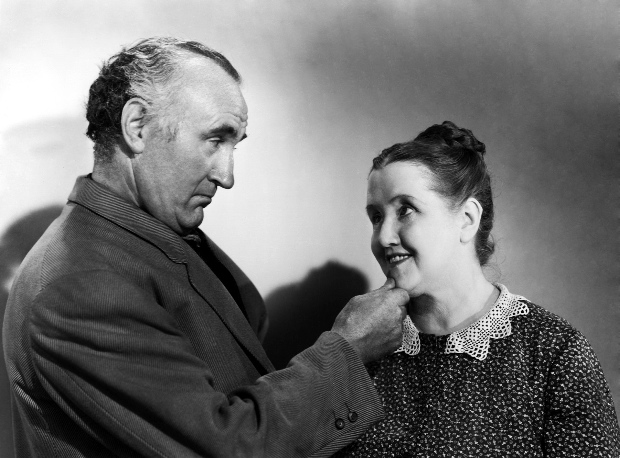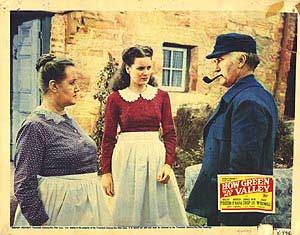
Jean-Luc
Godard once said that every tracking shot is a moral statement.
This is true and worthy of much meditation. Another way of
putting it might be “where a director moves his camera, there will his
heart be also”.
It occurs to me that the pacing of a film and the length of its shots
also involve moral choices. There are vast areas of human
experience which cannot be addressed with the kind of fast-paced MTV
editing that many films today employ, and moral choices come into play
when excluding these areas from popular culture.
These thoughts are prompted by a recent re-viewing of How Green Was My Valley,
one of the greatest works of American cinema. The film is not
really slow-paced — it's full of incident and movement — but it's
episodic and it pauses often to record the precise and deliberate way
certain incidents unfold. It's the story of a particular family and a
particular community but it's also a poem about family and community as
phenomena. It concerns itself, as Ford's films often do, with
process — in this case the process by which family and community are
constructed, the practical ways they function.

This involves showing the ways that mundane activities are ritualized,
so that everyone's role in them is clear. It involves showing the
ways that mutual consideration is shown — which might include a rude
jest or keeping one's peace, joviality or silence, singing and dancing
boisterously or slowing down the pace of a social interaction to
accentuate its gravity.
Modern films — which people in Hollywood are fond of referring to as “rides” — can feature families but they cannot be about
family in the way that Ford's films were about family. Families
can certainly go on rides, but family life is not constructed like a
ride. Family life is what happens between rides — and so is the
real story of How Green Was My Valley.

The family in the film, like all families eventually, comes apart —
through kids leaving home, disagreements between the generations,
external social pressures and death. The film's narrative is
almost a litany of
ordinary tragedies. But these are not the things that sum up the
film in your mind after you've seen it. It is not a tragedy, nor
a soap-opera ride. It's a movie about the creation of a miracle,
a work of art — a family. It's about the deathless essence of
family — the highest achievement of human civilization.
In Hollywood today, moral choices masquerading as aesthetic, stylistic
preferences virtually insure that this subject can never be presented
on the screen — though I would guess that there's hardly any subject modern audiences are hungrier for or more in need of.
